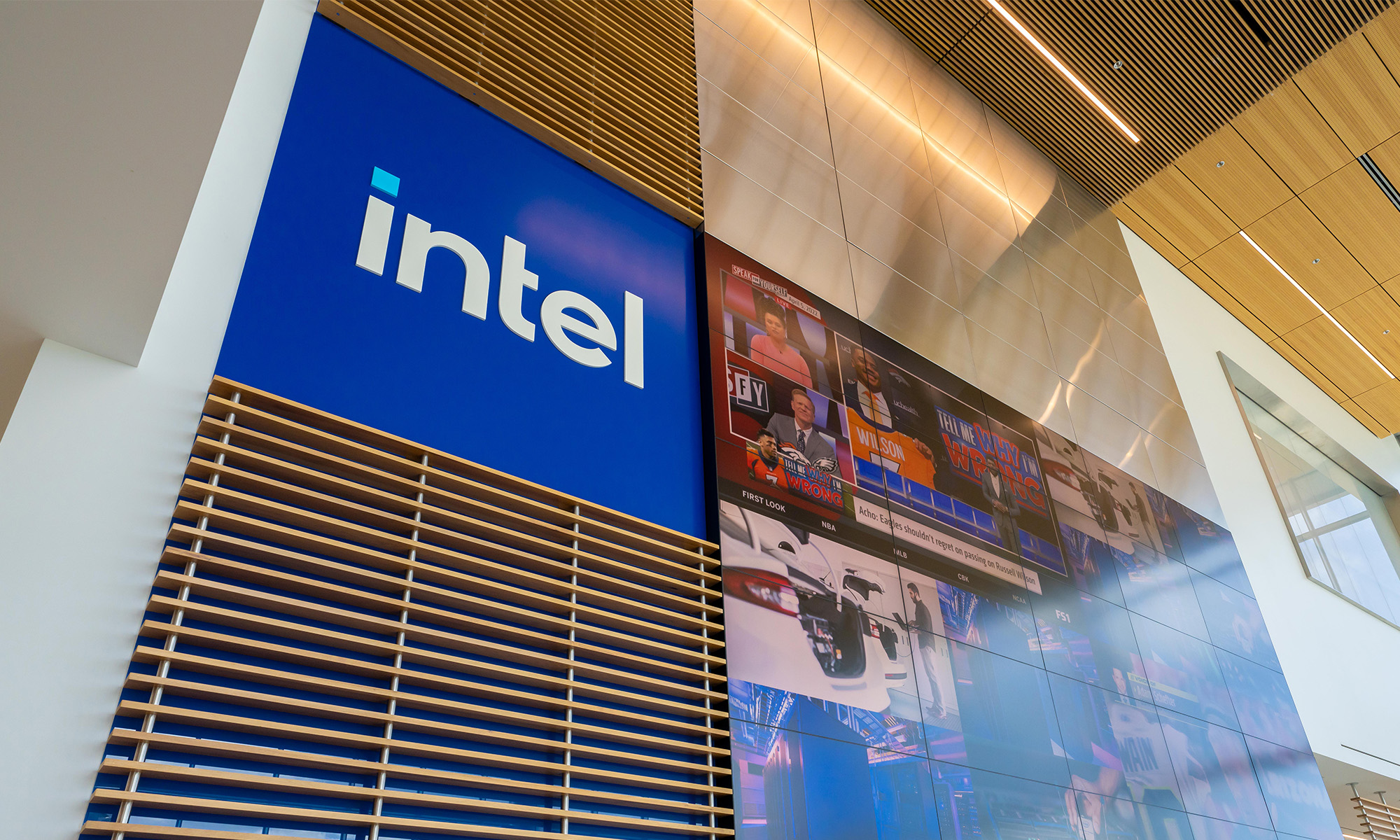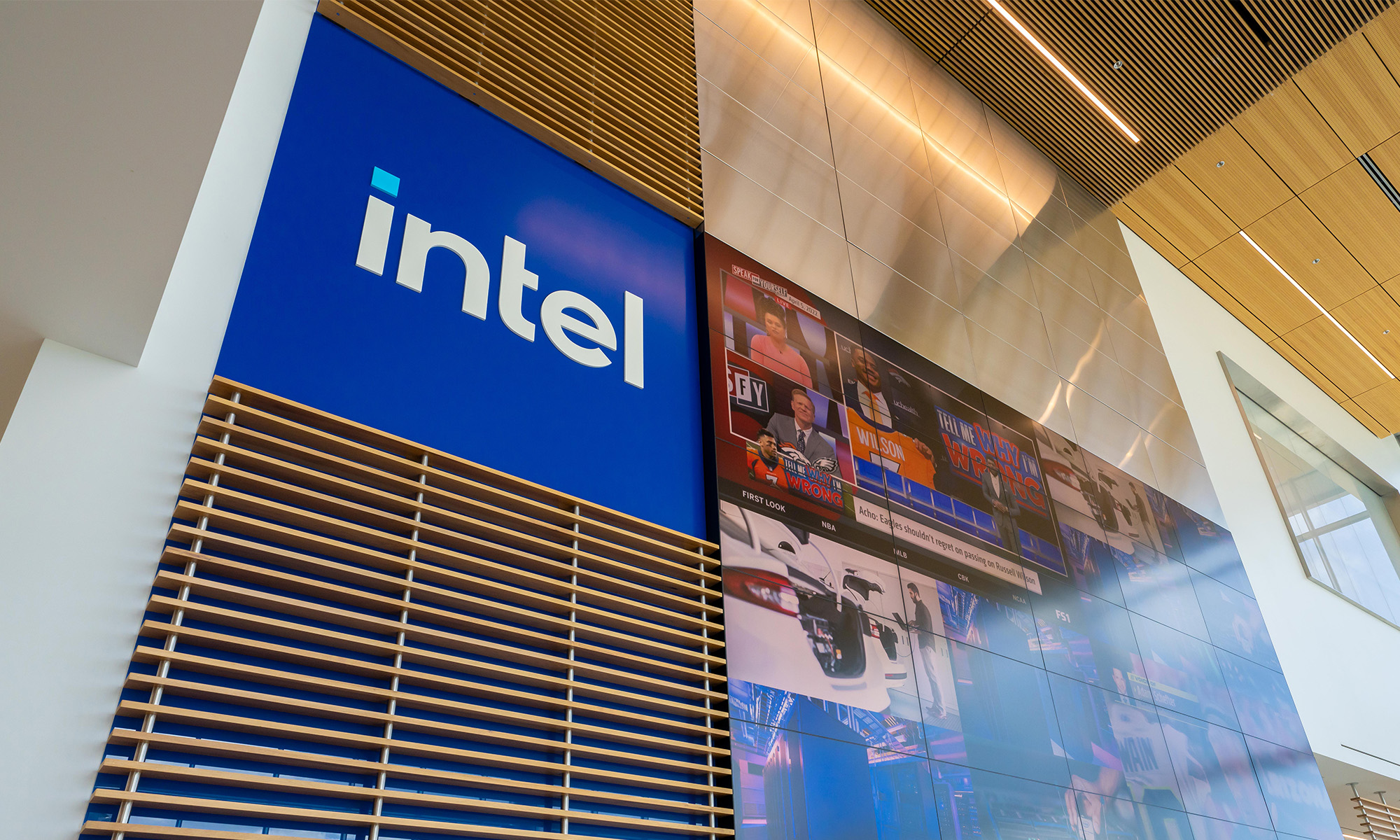Intel (INTC 0.06%) has never quite faced a competitor as deadly as Samsung (NASDAQOTH: SSNLF). One of the key questions that Intel still has yet to really answer is how it plans to outrun the South Korean behemoth as far as mobile-oriented processors go. Indeed, Samsung is the second-richest consumer electronics company, just behind Apple (AAPL +0.51%). It has the world's leading smartphone share and soon-to-be-leading tablet share. It's also been investing heavily in its own mobile processor line known as Exynos. The big question is how Intel can compete.
The situation
When it comes to chip design, there are three keys to consider:
- Performance
- Power
- Area
Generally speaking, you can optimize for two of the three -- a classic project trade-off triangle. So, a company like Apple or Samsung that designs its own chips for use in high-margin, high-end products, can afford to sacrifice area economy for high performance and low power consumption. Unfortunately, a merchant vendor like Intel has to keep the cost to build these chips in check, necessarily leading to either performance or power getting compromised. Given the strict thermal envelopes of these devices, the one that necessarily gets the axe is peak performance.
You could argue that Intel has a manufacturing lead over both Samsung's internal teams as well as all of the other merchant chip vendors, and thanks to faster and lower-power transistors and a denser process, Intel can have its cake and eat it, too. This, in theory, should hold true. Unfortunately, Intel's latest Bay Trail-T design shows that the company still has some learning to do as far as designing leadership mobile SoCs. That's negating the real structural advantages that Intel has with in-house manufacturing and a process lead, at least for now.
Can Intel outrun Samsung?
If Intel wants to win major sockets at Samsung, it will need to build chips that offer better performance, power, and integration than what Samsung's own teams can do for a given cost. Remember that Samsung owns its own factories and its own design teams, so unless Intel can differentiate on a feature that Samsung's own teams have trouble implementing -- in Qualcomm's (QCOM +0.30%) case, it's the modem -- it's going to be really tough for Intel to score a win with Samsung's mobile division.
The more interesting question is not whether Intel can outrun Samsung, but what Intel can do in order to be successful without Samsung as a customer of its high-end parts. This is where forming strategic relationships with the likes of Lenovo/Motorola, LG, HTC, and even Apple -- at least as a baseband/foundry partner -- starts to make real sense in phones. In tablets, the market is so fragmented and very much resembles the PC industry, so Intel shouldn't have as tough a time there. In short, Intel needs to become very close friends with Samsung's enemies.
Foolish bottom line
It would be a mistake to underestimate Samsung's growing chip prowess, and Intel should be doing everything that it can to either convince Samsung that it can be a better chip supplier than its own in-house teams -- as Qualcomm has -- or get very aggressive in trying to pursue business with everybody but Samsung. With enough of the rest of the industry under Intel's belt, the Samsung business would start to look much less important, and Intel's mobile future much brighter. Of course, this involves competing with Qualcomm, NVIDIA, MediaTek, Allwinner, Broadcom, and Rockchip – ouch!








